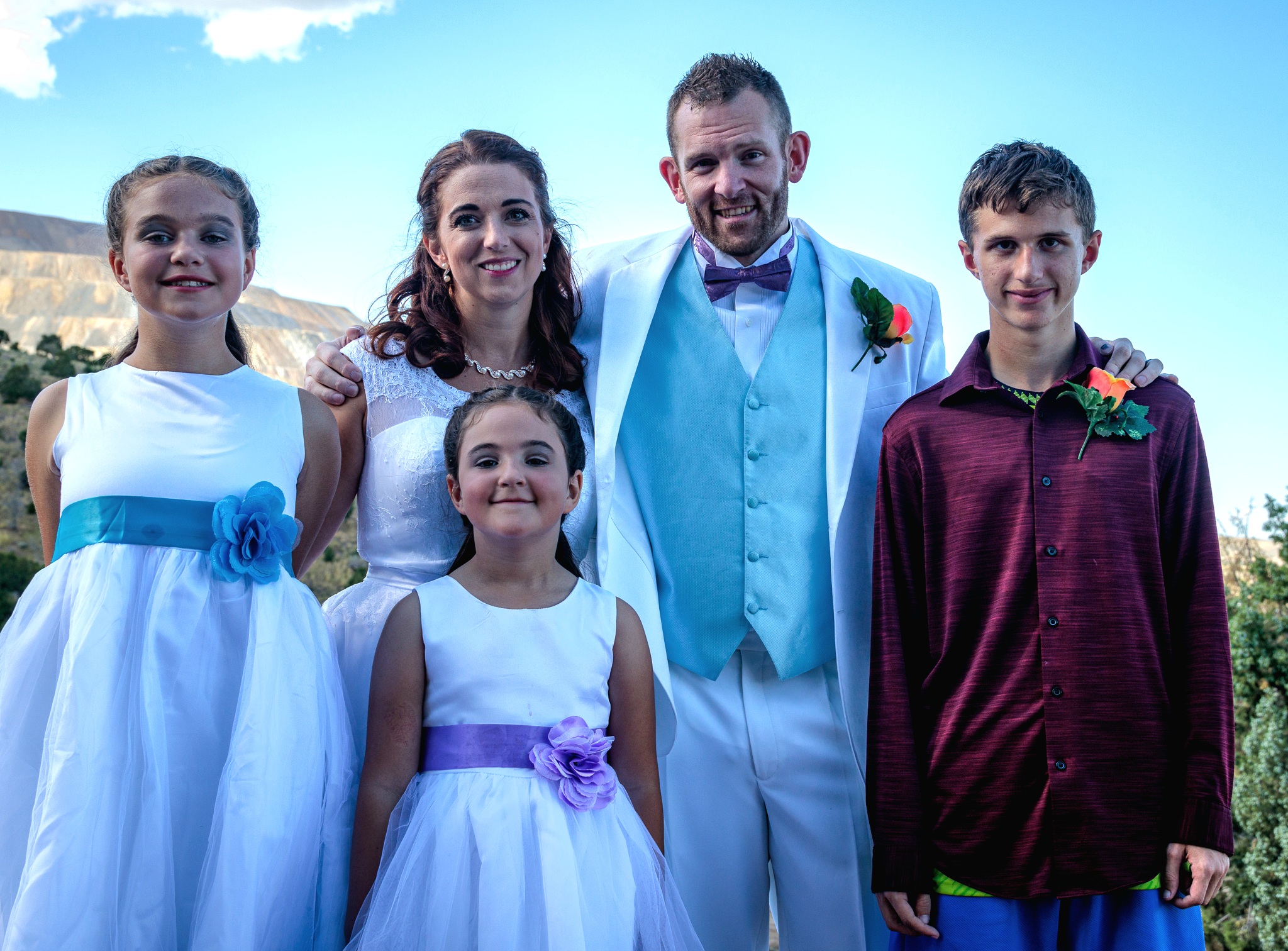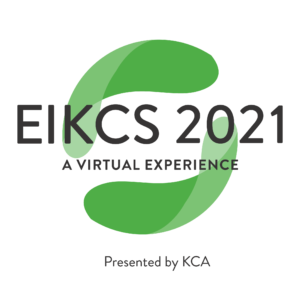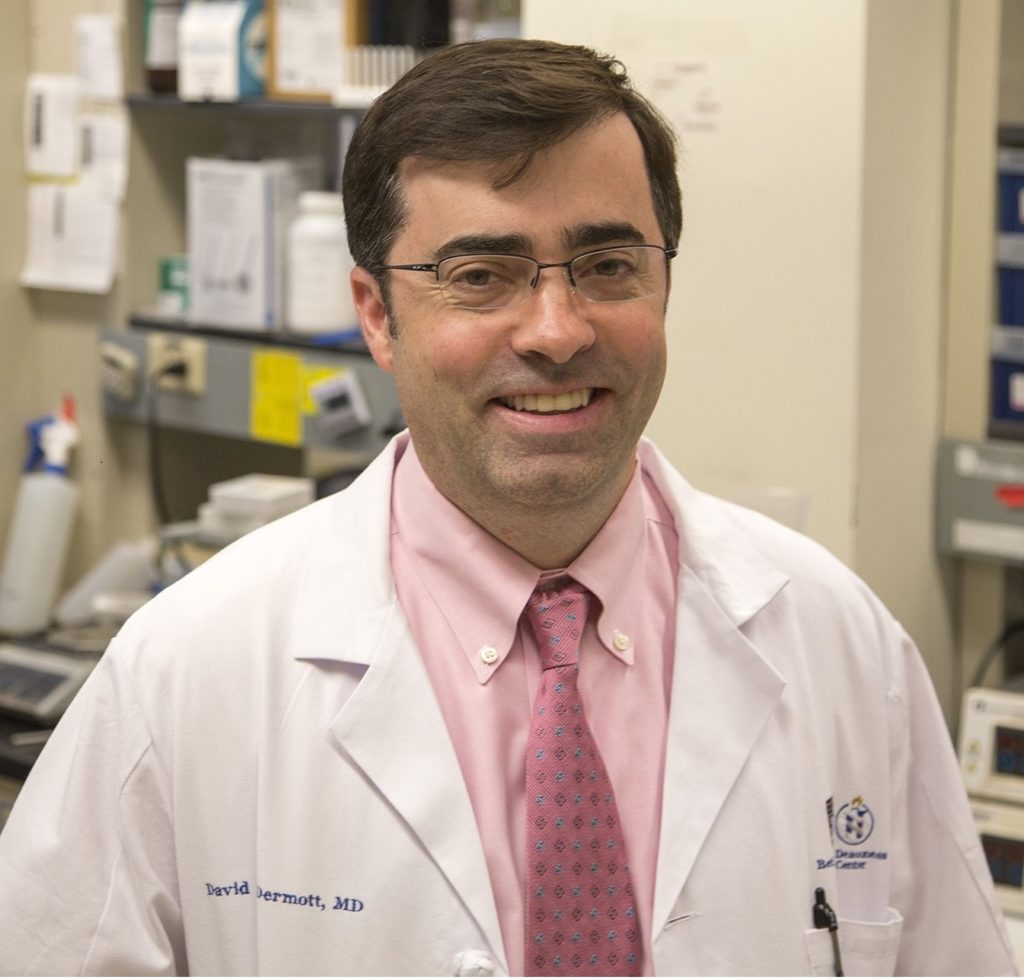
Amanda hopes her cancer journey is a positive example for her kids
April 22, 2024
This is a guest post by Amanda Reitz, a mother of three children who were 13, 9, and 5 years…
Read More
Last week, the Kidney Cancer Association hosted the 2021 European International Kidney Cancer Symposium virtually to gather top researchers and discuss trends, changes, and new developments in the field.

Of note, “cure” was a central part of the keynote address by Dr. David McDermott of Beth Israel Deaconess Medical Center in Boston.
McDermott posed this question to his colleagues: do you believe advanced kidney cancer can be cured?
“If you believe the answer is yes, then we should work as a group to make this more common,” he said.
Achieving cures may require more aggressive treatment in patients who might be predisposed to respond well to curative therapy. But that path requires new ways of thinking about predicting treatment response through biomarkers, improved trial designs, and new treatment targets such as the Nobel-winning work that uncovered the importance of the HIF transcription factor in kidney cancer development.
“I don’t think most oncologists look at kidney cancer as curable so they’re not willing to push,” McDermott said. “For most patients, immunotherapy is disappointing. But we should be pushing harder for appropriate patients.”
“For most patients, immunotherapy is disappointing. But we should be pushing harder for appropriate patients.”
One way McDermott suggested cures could become more common was by using a novel, patient-centric research goal – treatment-free survival (TFS)
TFS is the period of time between the end of first-line treatment and the beginning of second-line treatment.
TFS helps prioritize quality of life and could provide better guidance when considering a treatment plan compared with traditional research goals like overall survival or minimizing cancer progression.
That means taking into account, for example, whether a patient has a poor, intermediate, or favorable risk profile and whether treatment toxicities are worth the extra survival. These factors will vary depending on treatment with immunotherapy, targeted therapies, chemotherapies, or combinations of these.
While there is still plenty of research to be done, said Dr. Frede Donskov, an oncologist at Aarhus University in Denmark and a member of the EIKCS 2021 Scientific Planning Committee, pointed out the significance of even talking about curative therapy.
“It’s great to have a lecture discussing cure in the kidney cancer community,” he said.
Patient-centric goals were a theme across discussions of surgery, systemic therapy, biomarkers, and more during EIKCS 2021. Speakers emphasized over and over again that, in order to arrive at the most effective care plan, people with kidney cancer need to be considered as complex individuals with multiple unique variables that impact treatment.
Reframing how clinicians consider patients carried over into a discussion of language during the non-clear cell kidney cancer panel discussion.
Clear cell renal cell carcinoma is the most common type of kidney cancer, making up about 85% of diagnosed cases. All other types of RCC tend to be lumped into a “non-clear cell RCC” category.
However, speakers at the non-clear cell kidney cancer panel discussion were firm in saying they and their colleagues should be naming the specific cancer subtypes – papillary, renal medullary carcinoma, chromophobe, and others – when speaking with and about patients rather than grouping all these types under one non-clear cell umbrella.
Speaking about specific kidney cancer types is one way to further underscore the complex, individual nature of each kidney cancer diagnosis. This, speakers at EIKCS 2021 reiterated, will be the necessary path towards new approaches to treatment, care, and outcomes in kidney cancer that could ultimately lead to cures.
Watch presentations from EIKCS 2021 on the KCA YouTube channel.